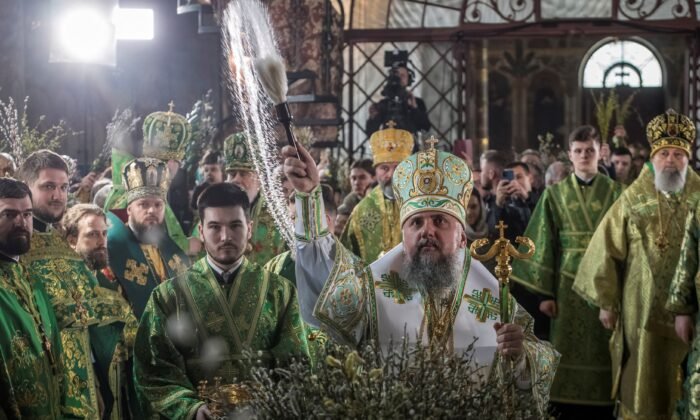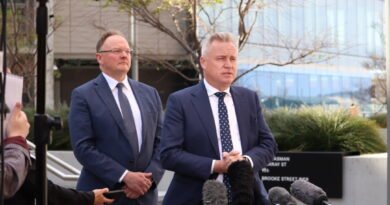Report Highlights the Crucial Role of Religious Actors in Peacebuilding in Ukraine and Russia
‘Despite their covert status, these projects are playing an important role in building bridges and de-escalating tensions,’ the report said.
Religious actors have the potential to radically encourage and shape peace efforts between Ukraine and Russia but are being overlooked by policymakers, according to a new report.
“The conflict in Ukraine is multilayered, and religion permeates every level,” the report says.
“Overall, the United States and other international partners must recognize that religious organizations and institutions will, in all likelihood, continue to play a prominent role in Ukraine’s political, ideological, and humanitarian spheres.”
The report found, however, that “elite views” including those of “key EU and Swiss policymakers” overwhelmingly “downplayed the role of religion and religious actors” in peacebuilding efforts in Ukraine.
“Policymakers evidently do not consider religious influences or rely on religious actors when making on-the-ground assessments,” the report reads.
“This preconception could represent a significant gap for European policymakers working on the conflict internationally.”
Religion a ‘Proxy War’ Within the War
Andrii Kryshtal, a co-author of the study, said that religious actors in Ukraine were notable for playing a reactive rather than prescriptive role in peacebuilding.
In other words, religious leaders more often acted “without a predefined set of actions” in order to address situations as they arose, whereas international actors were more slow to respond to emerging scenarios due to their focus on achieving pre-ordained strategic goals.
“… active peacebuilding was mainly locally based” with religious leaders,” Mr. Kryshtal, project manager for Conciliation Resources, a peace-building organization, said during a Jan. 18 talk at USIP.
Mr. Kryshtal noted that the Ukrainian Greek Catholic Church and the Ukrainian Orthodox Church both “still have parishes on both sides of the conflict lines,” and could therefore be motivated to help victims of the war regardless of nationality.
That geographical diffusion has created problems too, however, with political forces in Moscow and Kyiv both seeking to coopt religious leaders into serving the soft power needs of the state.
“Religion became instrumentalized by different political actors [after the invasion],” Mr. Kryshtal said.
To that end, confrontations have emerged between Ukraine’s three largest faith communities: The Ukrainian Orthodox Church (UOC) of the Moscow Patriarchate, the Orthodox Church of Ukraine (OCU), and the Ukrainian Greek Catholic Church (UGCC).
Catherine Wanner, a professor at Pennsylvania State University, described the situation as “something of a proxy war on a religious battlefield that parallels the actual war.”
Still, she said, the churches’ ability to provide for peacebuilding efforts remained immense due to their pre-existing hierarchies and humanitarian outreach services.
“I don’t know of many governmental offices or NGOs that could offer those capabilities,” Ms. Wanner said.
Increasing Politicization Among Churches
Few in Ukraine and Russia have been immune to the politicization of religion following Russia’s full-scale invasion in 2022.
The USIP report notes that even Ukrainian President Volodymyr Zelenskyy, previously viewed as immensely secular, has begun to buy into increasingly religious rhetoric when talking about the conflict.
“Although Zelensky showed little interest in promoting a political narrative laden with religion at the beginning of his administration, references to religion and ensuring Ukraine’s “spiritual independence” entered his rhetoric in late 2022” the report reads.
The increasing polarization of religion is not isolated to Ukraine, and is becoming increasingly prevalent among former Soviet states in Eastern Europe.
For now, however, there is still some hope that religious leaders at the local level can encourage peace and healing among their own communities.
“Despite their covert status, these projects are playing an important role in building bridges and de-escalating tensions,” the report says of local church efforts.
“Under these trying circumstances, both the strengths and weaknesses of religious actors have been on full display, on the one hand confirming their ability to take highly effective humanitarian action, and on the other demonstrating their relative powerlessness in the face of the state, which has continued to instrumentalize religion for political purposes.”
Denys Brylov, head of European Centre for Strategic Analytics, and Tetiana Kalenychenko, the organization’s executive director, co-authored the report.






